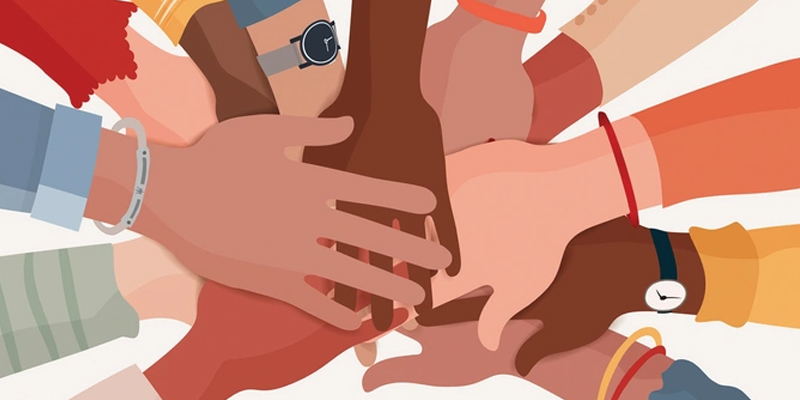The practice during decades showed that in the hospitality and tourism workforce diversity is one of the important factors of success. Workplace diversity enables businesses in the hospitality industry to create and portray a positive image of inclusive equal opportunities employer for all without distinguishing by race, gender, or nationality. Evidently, limiting talent pool to a specific group of people is not a great strategy for talent management, finding and retaining the best and brightest employees.
It’s all about the efficiency of the service and the consistency of service, because the robots are not disturbed by human moods. Sometimes, we say we are not in the mood, but the system and the robot will always be in the mood.
-Andy Wang, CEO of Alibaba Future Hotel Management
At the same time, racial and ethnic minorities are underrepresented in hotel management. According to the Hotelsmag website, while servicing staff can be characterized as having some rate of diversity (although still not sufficient), only 1.5% of hospitality industry executives are blacks. A kind of similar situation is observed in gender diversity in hospitality companies’ senior leadership. In general, one can say that the phenomena of glass ceiling and sticky floor are inherent both for women and racial/ethnic minorities in hospitality sector leadership.
For comparison, already in 2019, in Starbucks 15% of senior leadership were people of color. Starbucks’ recent commitments to diversity imply special new mentorship program, aimed at line workers at its cafes and strives to greater percentage of minorities (up to 30%) in its workforce at all levels of hierarchy, including CEO
Major American companies such as Starbucks, Facebook, LinkedIn, Uber, H&M North America and others are confident that the shift to distance work and distributed teams due to COVID-19 is not a reason to pause efforts to create an inclusive work environment. They found effective ways how companies can support employees financially and psychologically, what is the best to approach the issue of layoffs, and why taking care of one is the key to the well-being of all. Virtual corporate events, special educational programs, online communities for specific minorities groups – this is far not the full list of initiatives.
Wide-scale business transformation using technology is possible – and should be executed – by boutique and traditional hotel chains. Technological innovation in structure and ideology is the key to surviving COVID-19 as we – according to Laura Wolinsky – do the “slow crawl back to normalcy for traditional hotels.
Representatives of hospitality industry claim that COVID-19 pandemic crisis reversed some progress in achieving diversity in the industry. Crisis facing the hotels put on the back burner the issues of diversity, and the questions of diversity and inclusion are not raised at board meetings, which led to appearance of some practices with discriminatory ‘shade.’ Lack of transparency contributes to deeper worsening of the situation and negatively affects corporate culture, innovative potential, talent management, engagement practices, and, as a consequence, leads to decrease of employees’ loyalty and increase of staff turnover, manifesting in the long run in falling organizational performance and loosing shaped over the years culture of excellence.
Rather awkward statements are made by HR managers and CEOs in traditional hotel industry about labor market’ lack of professionals worthy to take a position in top management among people of color. With such approaches, hotels put themselves at risks of continuing loss of market positions, as clients will give increasing preference to alternative services such as Airbnb. The Airbnb vision concerning workforce diversity is clear, comprehensive, and sounds attractive: they say that feeling of home goes hand in hand with ethnic and sociocultural diversity. “To truly make the whole world our common home, we first need to create jobs where everyone’s opinion is important and everyone will be heard” – the website declares (How Airbnb is building its culture through belonging). As to 2018, almost 44% of Airbnb employees are women, and whites constitute only 48%.
There is a window of opportunity for industry leaders to invest in people, reinvent operating models and modernize the people side of the hospitality industry.
At the same time, it should be noted that the crisis is a time to strengthen the hotels’ positive image as employers. Building the hotel’s internal image and employee perceptions of it is complex and ambiguous. However, it should not be neglected, because if the statements and actions of the organization, its positioning in the market do not coincide with the reviews of its employees about it, then the negative internal image will overlap the whole positive. As a result, the hotel will lose part of the consumer market, its reputation in the eyes of potential candidates for existing vacancies in the hotel, as well as its clients.
The hiring suspension and massive wave of layoffs have become real hurdles for some companies, which have set goals for a culturally diverse and inclusive workplace. However, even when deciding whether to discharge employees, managers must be guided by the principles of cultural pluralism and inclusiveness. The COVID-19 pandemic, like any crisis, provides unique possibilities for development and improvement – it is a unique opportunity to increase inclusiveness and focus on the professional development of employees belonging to particular minorities. Attention should be paid to the fact that now, in the conditions of tough competition with alternative lodging services, hotels need employees with different cultural backgrounds. If the task is to select specialists that the company did not attract before – who know the specifics of work and understand the situation on the market, who are able to implement a new concept and propose a new direction for hotel development – then it is necessary to use all the company’s advantages and motives that drive people, based on their background in the context of diversity.



